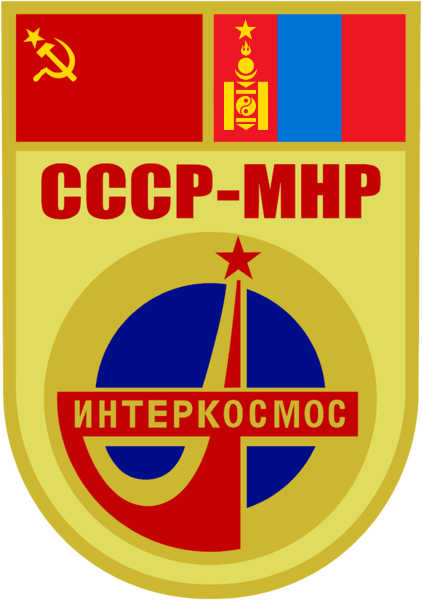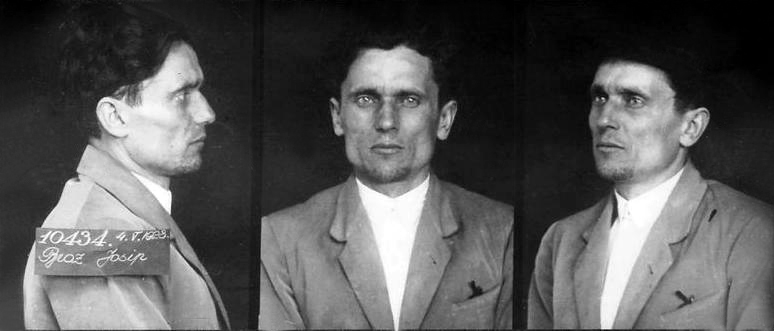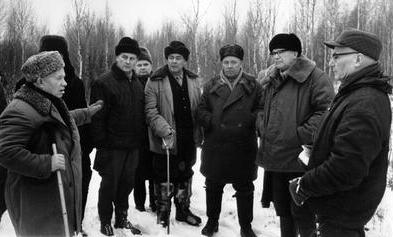|
Order Of Sukhbaatar
The Order of Sukhbaatar (or Order of Suche Bator) is a state decoration of Mongolia, originally instituted on 16 May 1941. It was awarded to Mongolians and foreigners "for special services to defenses, economic and cultural construction of the Mongolian People's Republic, and also for acts of heroism in the struggle against external and internal enemies". It was named after the Mongolian national hero, Damdin Sükhbaatar. It is still conferred today and has been the highest state order since 1992, awarded by the decree of the President of Mongolia. Order description This medal is worn on the left side of the brooch before or at the beginning of other medals. He is also awarded the title of Hero of Mongolia and Hero of Labor. The number of awards with the order, according to Herfurt, is 1700. Recipients of the Order received a number of civic privileges. Those awarded with the order have the right to free visits to museums, exhibitions, lectures, reports and all other cultural an ... [...More Info...] [...Related Items...] OR: [Wikipedia] [Google] [Baidu] |
President Of Mongolia
The president of Mongolia is the executive head of state of Mongolia.Montsame NW Agency. ''Mongolina''. 2006, , p. 42 The current president is Ukhnaagiin Khürelsükh. Political parties with representation in the State Great Khural nominate candidates. The president was originally limited to two four-year terms, but this was changed to a non-renewable six-year term starting with the 2021 presidential election. The president can be removed from office if two-thirds of the Khural find them guilty of abusing their powers or violating their oath.Montsame News Agency. ''Mongolia''. 2006, , p. 43 Before inauguration, however, the president-elect must suspend their membership of any political party. Powers of the president *Nominating a candidate for the office of Prime Minister, who is then approved or rejected by the State Great Khural (parliament). This is a ceremonial responsibility, as the Khural will most likely reject any nominee who is not its own choice – in effect, ... [...More Info...] [...Related Items...] OR: [Wikipedia] [Google] [Baidu] |
Pavel Batov
Pavel Ivanovich Batov (; – April 19, 1985) was a senior Red Army general during the World War II, Second World War and afterwards, twice Hero of the Soviet Union. Batov fought in World War I, where he was awarded the Cross of St. George twice. After being wounded in 1917, he was sent to a school in Petrograd and joined the Bolsheviks. He fought in the Russian Civil War and became an advisor with the XII International Brigade during the Spanish Civil War. During World War II, Batov commanded the 51st Army (Russia), 51st Army in the Crimea. In 1942, he became the commander of the 3rd Army (Soviet Union), 3rd Army and then the 4th Tank Army, which was renamed the 65th Army (Soviet Union), 65th Army. Postwar, Batov commanded the Carpathian Military District. Early military career Born in Filisovo in 1897, Batov began his military career during World War I. In 1915, he enlisted in a student command and then served as a scout in the 3rd Infantry Regiment of the Imperial Guard (Rus ... [...More Info...] [...Related Items...] OR: [Wikipedia] [Google] [Baidu] |
Andrei Getman
Andrei Lavrentyevich Getman (; , Andriy Lavretiyovych Hetman; 5 October (22 September OS) 1903 – 8 April 1987) was a Soviet military commander, Army General (13 April 1964) and Hero of the Soviet Union (May 7, 1965). After joining the Red Army in 1924, Getman graduated from the Red Commanders School in 1927 and the Military Academy of Mechanization and Motorization of the Red Army in 1937. Sent to postings in the Transbaikal Military District, he fought at the Battle of Lake Khasan and the Battle of Khalkhin Gol. After Operation Barbarossa, Getman was sent west to command the 112th Tank Division in the defense of Moscow. In April 1942, he became the commander of the 6th Tank Corps, which was converted into the 11th Guards Tank Corps for its actions in the Battle of Kursk. Getman became the deputy commander of the 1st Guards Tank Army in August 1944. After the war, he was commander of armored tank and mechanized troops of the Transcaucasian Military District and was chief of s ... [...More Info...] [...Related Items...] OR: [Wikipedia] [Google] [Baidu] |
Maidarjavyn Ganzorig
Maidarjavyn Ganzorig (; 5 February 1949 – 4 July 2021) was a Mongolian cosmonaut and academic. In 1978, he participated in the Soviet Intercosmos program and trained for the Soyuz 39 mission. Biography Ganzorig was born in Tsetserleg, Arkhangai in 1949, finishing his secondary education in 1968. He studied at Kyiv Polytechnic Institute, earning a degree in heating and precision automated devices maintenance, graduating in 1975. In 1978, he was selected as the backup to Jügderdemidiin Gürragchaa for the Soyuz 39 mission, who would become the first Mongolian in space. In 1984, he received a Candidate of Technical Sciences degree. From 1984 to 1991 Ganzorig was Head of the RS Laboratory at the Institute of Physics and Technology, Mongolian Academy of Sciences, and since 1991 served as the Director of Informatics at the Remote Sensing Center, Mongolian Academy of Sciences, Ulaanbaatar Ulaanbaatar is the Capital (political), capital and List of cities in Mongolia, most po ... [...More Info...] [...Related Items...] OR: [Wikipedia] [Google] [Baidu] |
Ivan Fedyuninsky
Ivan Ivanovich Fedyuninsky (; July 30, 1900 – October 17, 1977) was a Soviet military leader and Hero of the Soviet Union (1939). Early life Fedyuninsky was born into a peasant family near Tugulym in the Urals. He finished the village school in 1913 and was apprenticed to a painter and decorator. He joined the Red Army in 1919. Military career He fought on the Western Front in the Russian Civil War and was wounded twice. On July 29, 1921, he was transferred to 33rd Reserve Regiment at the city of Omsk. He studied at the Red Army Command Staff school in Omsk and in 1923, he was transferred to Vladivostok where he studied at the Infantry school from 1923 to 1924. Upon completion, he was appointed platoon commander in the 107th rifle regiment. In 1929, as the commander of the 6th company of the 36th Rifle Division of the Far Eastern Military District, he took part in the 1929 Sino-Soviet conflict on the Chinese Eastern Railway. For resourcefulness and skillful leadership show ... [...More Info...] [...Related Items...] OR: [Wikipedia] [Google] [Baidu] |
Vladimir Dzhanibekov
Vladimir Aleksandrovich Dzhanibekov (, born 13 May 1942) is a retired Soviet Air Force Major General and a cosmonaut veteran of five orbital missions. Biography Dzhanibekov was born Vladimir Aleksandrovich Krysin () in the remote area of Iskandar in what was then Bostanliq District, South Kazakhstan Region, Kazakh SSR (since 1956 – Tashkent Region, Uzbekistan) on 13 May 1942. His family moved to Tashkent soon after his birth. In 1964 he married Liliya Munirovna Dzhanibekova, who was a descendant of Janibeg, medieval ruler of the Golden Horde. As her father had no sons, Dzhanibekov took his wife's family name in order to honour her ancestry and continue her line of descent, an unusual step for a husband in the Soviet Union. In 1960 he entered Leningrad University to study physics, where he became involved in flying, something in which he had always been interested. In 1961 he decided to enroll in the V. M. Komarov Higher Military Flying School at Yeisk while simultaneousl ... [...More Info...] [...Related Items...] OR: [Wikipedia] [Google] [Baidu] |
Vladimir Dolgikh
Vladimir Ivanovich Dolgikh (; 5 December 1924 – 8 October 2020) was a Russian politician who was head of the Metallurgical Department of the Central Committee Secretariat of the Communist Party of the Soviet Union. He was a candidate member (non-voting) of the Politburo from 1982 to 1988. Career Dolgikh's early career involved various industrial and engineering management positions in Krasnoyarsk and Norilsk. In 1969, he became the First Secretary of the Krasnoyarsk Krai Committee of the CPSU. He was made a member of the CPSU Central Committee in 1971. In 1972, he became a Secretary of the Central Committee.David A. LaRussian civilization MSS Information Corp., New York, 1975; p. 240 Dolgikh was elected as a candidate member of the Politburo in May 1982, at the same plenum of the Central Committee of the CPSU that made Yuri Andropov a secretary of the Communist Party of the Soviet Union. Dolgikh retired from all his CPSU leadership positions in September 1988.White, p. 20 Do ... [...More Info...] [...Related Items...] OR: [Wikipedia] [Google] [Baidu] |
Vasily Chuikov
Vasily Ivanovich Chuikov (, ; – 18 March 1982) was a Soviet military commander and Marshal of the Soviet Union. He is best known for commanding the 62nd Army which saw heavy combat during the Battle of Stalingrad in the Second World War and for being the commanding general to receive the surrender of the German troops defending Berlin. Born to a peasant family near Tula, Chuikov earned his living as a factory worker from the age of 12. After the Russian Revolution of 1917, he joined the Red Army and distinguished himself during the Russian Civil War. After graduating from the Frunze Military Academy, Chuikov worked as a military attaché and intelligence officer in China and the Russian Far East. At the outbreak of the Second World War, Chuikov commanded the 4th Army during the Soviet invasion of Poland, and the 9th Army during the Winter War against Finland. In December 1940, he was again appointed military attaché to China in support of Chiang Kai-shek and the Na ... [...More Info...] [...Related Items...] OR: [Wikipedia] [Google] [Baidu] |
Gonchigiin Bumtsend
Gonchigiin Bumtsend (; 11 September 1881 – 23 September 1953) was a Mongolian revolutionary who held several high level positions within the Mongolian government in the 1940s and early 1950s. He was Chairman of the Presidium of the State Little Khural (titular head of state) of the Mongolian People's Republic from July 1940 until his death, 1953. Early life and career Bumtsend was born on 11 September 1881 in Züünbürenhanuul Hoshuu, Tüsheet Khan Province (present day Yeröö district, Selenge Province). The son of a poor herding family, Bumtsend taught himself to read and write Mongolian script at age 13 and helped illiterate herdsmen in his area write petitions to the government. In his youth he worked as a woodworker and a cart driver at a horse relay station. During the Bogd Khanaate he worked as a laborer in Khüree (present day Ulaanbaatar). Bumtsend made his first contact with Mongolian revolutionaries in 1920 while working for the administration of his local h ... [...More Info...] [...Related Items...] OR: [Wikipedia] [Google] [Baidu] |
Slobodna Dalmacija
(, where "Free" is an adjective) is a Croatian daily newspaper published in Split. History was first issued on 17 June 1943 by Tito's Partisans in an abandoned stone barn on Mosor, a mountain near Split, while the city was occupied by the Italian army. The paper was later published in various locations until Split was liberated on 26 October 1944. From the following day onward, has been published in Split. Another reason for this success was the editorial policy of Joško Kulušić, who used the decline of Communism to allow the paper to become a forum for new political ideas. In the early 1990s, established a reputation as a newspaper with a politically diverse group of columnists, both left-leaning and those who supported the government. However, the ruling right-wing Croatian Democratic Union tried discredit it, calling the journalists too "liberal", "communist" or "Yugoslav". At that time it had a circulation of 90,000 to 100,000 copies. In 1992, the government init ... [...More Info...] [...Related Items...] OR: [Wikipedia] [Google] [Baidu] |
Josip Broz Tito
Josip Broz ( sh-Cyrl, Јосип Броз, ; 7 May 1892 – 4 May 1980), commonly known as Tito ( ; , ), was a Yugoslavia, Yugoslav communist revolutionary and politician who served in various positions of national leadership from 1943 until his death in 1980. During World War II, he led the Yugoslav Partisans, often regarded as the most effective Resistance during World War II, resistance movement in German-occupied Europe. Following Yugoslavia's liberation in 1945, he served as its Prime Minister of Yugoslavia, prime minister from 1945 to 1963, and President of Yugoslavia, president from 1953 until his death in 1980. The political ideology and policies promulgated by Tito are known as Titoism. Tito was born to a Croat father and a Slovene mother in Kumrovec in what was then Austria-Hungary. Drafted into military service, he distinguished himself, becoming the youngest sergeant major in the Austro-Hungarian Army of that time. After being seriously wounded and captured by th ... [...More Info...] [...Related Items...] OR: [Wikipedia] [Google] [Baidu] |
Leonid Brezhnev
Leonid Ilyich Brezhnev (19 December 190610 November 1982) was a Soviet politician who served as the General Secretary of the Communist Party of the Soviet Union from 1964 until Death and state funeral of Leonid Brezhnev, his death in 1982 as well as the fourth List of heads of state of the Soviet Union, chairman of the Presidium of the Supreme Soviet (head of state) from 1960 to 1964 and again from 1977 to 1982. His 18-year term as General Secretary was second only to Joseph Stalin's in duration. Brezhnev was born to a working-class family in Kamianske, Kamenskoye (now Kamianske, Ukraine) within the Yekaterinoslav Governorate of the Russian Empire. After the results of the October Revolution were finalized with the creation of the Soviet Union, Brezhnev joined the Communist party's youth league in 1923 before becoming an official party member in 1929. When Operation Barbarossa, Nazi Germany invaded the Soviet Union in June 1941, he joined the Red Army as a Political commissar, ... [...More Info...] [...Related Items...] OR: [Wikipedia] [Google] [Baidu] |




